News
Peter Obi Decries Power Grid Collapse as Sign of Leadership Failure
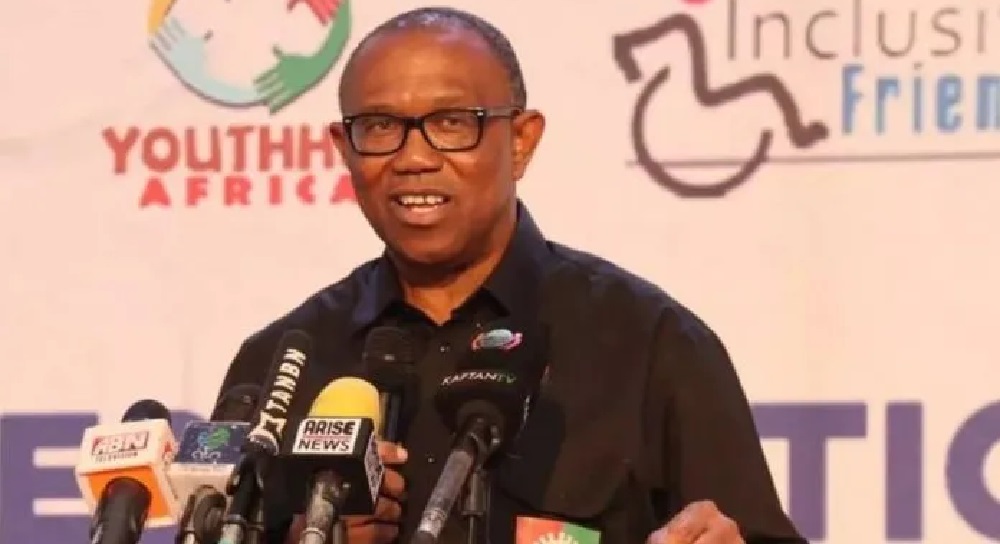
On Tuesday, Peter Obi, the 2023 presidential candidate of the Labour Party (LP), expressed his dismay over the recent collapse of Nigeria’s national power grid, labeling it a national shame that highlights significant leadership failures in the country.
Obi called for immediate reforms in Nigeria’s power sector, stating that the latest incident has further exposed the fragile state of the nation’s electricity infrastructure.
In a post on X, he remarked, “For the umpteenth time, the national grid has collapsed, plunging a huge part of the nation into darkness and exposing the fragility of Nigeria’s power infrastructure.” He emphasized that this recurring disaster serves as a stark reminder of the government’s failure to prioritize the welfare and economic well-being of its citizens.
Obi posed a poignant question: “How long must Nigerians endure a system that fails to provide one of the critical necessities for a productive society?” He underscored the vital role of electricity supply in transforming the economy, particularly in supporting small and medium-sized enterprises (SMEs), which are crucial for job creation and significantly contribute to the country’s GDP.
He highlighted Nigeria’s decline from the position of Africa’s largest economy to fourth place, attributing this regression to ongoing leadership failures and the persistent power crisis.
“Today, we are the fourth largest economy in Africa, having fallen from the number one position due to leadership failure over the years,” he stated, comparing Nigeria’s electricity generation to that of other African nations:
South Africa, now the largest economy on the continent, generates and distributes over 40,000 megawatts with a GDP of approximately $400 billion and only 30% of Nigeria’s population.
Egypt, the second-largest economy, also produces over 40,000 megawatts and has a GDP of about $350 billion, with half of Nigeria’s population.
Algeria, the third-largest economy, generates over 50,000 megawatts and has a GDP of about $300 billion, with only 20% of Nigeria’s population.
In stark contrast, Obi pointed out that Nigeria, despite its larger population and lower GDP, generates and distributes less than 10,000 megawatts, with frequent outages and crises.
“This disparity in power generation is a reflection of the deep-rooted governance deficit that continues to hold back our growth and potential,” he concluded, urging for urgent, comprehensive reforms in the power sector. “Nigerians deserve a government that prioritizes.
News
FG announces April deadline for completion of East-West Road
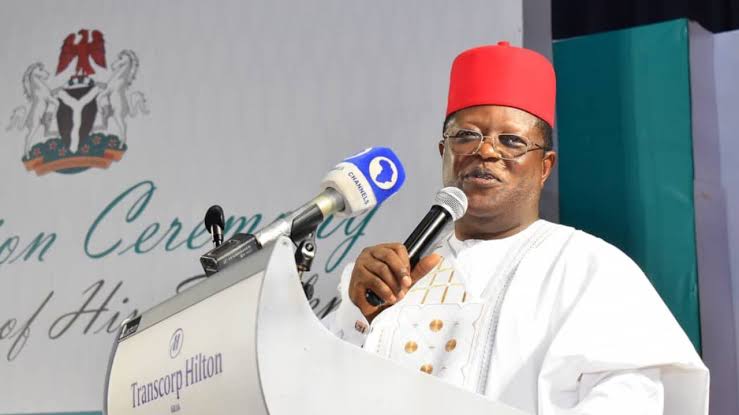
The Federal Government has directed the contractor handling the Eleme section of the East-West Road to expedite drainage work to meet the April deadline for completion.
The Minister of Works, David Umahi, issued the directive during an inspection of the ongoing 15km road upgrade from Eleme Junction to Onne in Eleme Local Government Area of Rivers State.
While commending Reynolds Construction Company Nigeria Limited for the quality of work done, Umahi insisted that the drainage must be prioritised to ensure timely completion.
“RCC has done very well. The work completed in the past two months is more than what was done since the project started. However, the project slowed down significantly when the site manager went on leave. I’m happy to see him back and satisfied with the quality of work RCC is delivering,” Umahi stated.
He emphasised the need to test existing road shoulders before excavation, warning against unnecessary digging for financial gains.
“The existing shoulder has to be tested throughout. I don’t want them digging up areas filled with sharp sand and stone base just to increase costs. If they don’t test it and request approval for any section they dig, they won’t get paid,” he warned.
Umahi also observed that drainage construction had either stopped or slowed significantly, urging the contractor to redesign and precast drainage systems for quicker installation, even during the rainy season.
“I’m happy with the project’s progress, and I believe they will complete the carriageway by the end of April. However, if drainage work is not completed, the project remains unfinished. They must accelerate drainage work to ensure we clear this carriageway by April,” he stated.
The minister further directed that any section of the road that has remained untouched for 21 days after concrete casting should be opened to commuters to ease traffic congestion.
“Anywhere that has stayed 21 days since concrete was cast should be opened to road users, starting today. This concrete technology will ensure the road lasts between 50 and 100 years without maintenance or reconstruction. It is a signature project of President Bola Tinubu,” he added.
Umahi also inspected the rehabilitation of the Enugu-Port Harcourt dual carriageway, Section IV (Aba–Port Harcourt), which is being handled by the Chinese Construction Engineering Company.
News
Reasons behind extreme heat conditions in FCT, Niger, Kogi – NiMet

The Nigerian Meteorological Agency (NiMet) has given reasons for the high temperatures residents of the Federal Capital Territory (FCT), Niger, Kogi and few other states are currently experiencing.
The current maximum temperature in the listed states is 40°C and the minimum is 23°C.
The Seasonal Climate Prediction (SCP) released last month by the agency shows that most of the northern and central states would record day-time temperatures ranging between 37°C and 40°C, while parts of Kano, Kaduna, Bauchi, and Plateau states in the North as well as Oyo, Osun, Ogun, Ekiti, Edo, Enugu, Anambra, Ebonyi, Imo, Abia, part of Cross River and Delta states in the South are expected to record temperatures ranging between 34°C and 37°C this month.
The agency attributed the high temperatures to climate change and advised Nigerians to embrace a lifestyle switch.
Residents of the states experiencing high temperatures are advised to avoid exposure to direct sunlight between noon and 3 p.m.
There are also indications that this year may be hotter than last year, which was described as the hottest year.
NiMet’s Director of Weather Services, Prof. Vincent Weli, announced this while speaking on phone with The Nation yesterday. He said: “Everything is embedded in the climate change theory. Every experience we are having now is a result of climate change. The hotness, in general, is because of climate change.
“Abuja, Lokoja, and Minna are located within the same ecological zone and these towns share the same weather pattern. Whatever happens to Lokoja will affect Minna and Abuja because they are in the same route of the flow of wind and also lie within the same climatic zone. Also, these towns have the same vegetation pattern.
“So, since they are within the same climatic belt, everything that affects Minna and the FCT will affect Lokoja accordingly. The heat is affecting everywhere, not just these towns mentioned. We said last year was the hottest in the history of the earth but this year already is trying to beat it to become the hottest.
“So, as the year increases, it’s obvious that we are going to have higher temperatures. I don’t know where we are headed with this trend, but something needs to be done to reverse the trend.”
To make the best of the situation, Prof. Weli said: “What can reverse the trend is for us to encourage every activity of man that will reduce the emission of carbon dioxide into the atmosphere, such as the use of electric cars, solar power and planting of trees.
“These will be other sources of energy other than the use of diesel and petrol and other hydrocarbon compounds that we use as sources of power. Also, we should plant more trees to reduce carbon dioxide in the atmosphere. The more we plant trees, the more we reduce carbon dioxide in the atmosphere and the more we increase the oxygen.”
The NiMet director urged residents of the affected states with high temperatures to take necessary action to overcome the hot weather.
He said: “In order not to experience what we call heat stroke, people should drink more water often, keep themselves off the direct impact of sunlight between 12 p.m (noon) and 3 p.m. If people do not expose their bodies to the direct impact of sunlight, it will reduce water loss from the system.
“So, people should drink more water than necessary. Otherwise, their systems will be dehydrated, and that will cause secondary health issues.”
News
JAMB begins sales of 2025 direct entry forms March 12
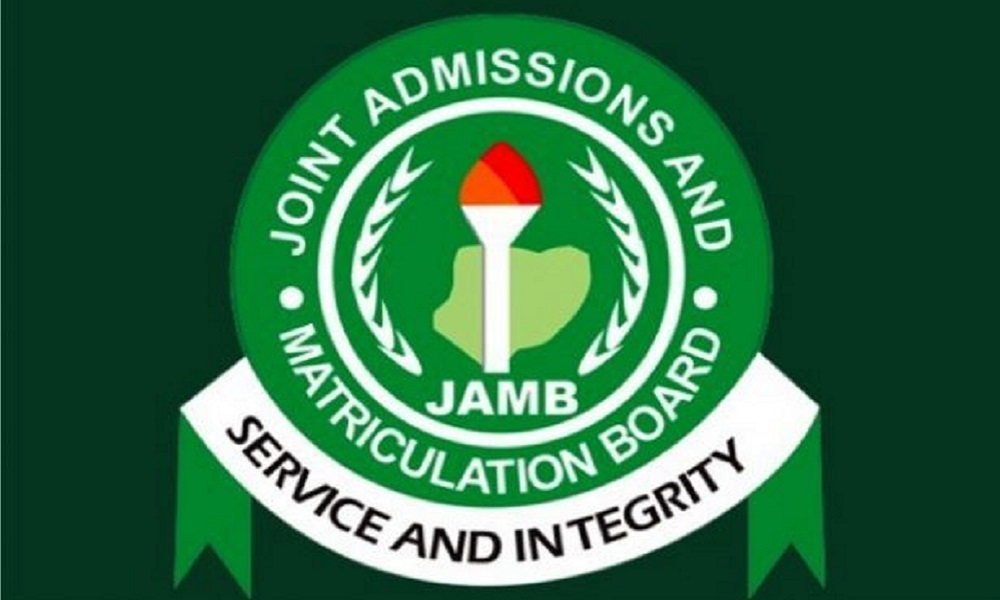
Registration for this year’s Direct Entry (DE) form will begin tomorrow, the Joint Admissions and Matriculation Board (JAMB) has said.
The board said the registration process is crucial for those who possess degrees, diplomas, or A-Level certificates and wish to advance their education at their preferred universities.
JAMB’s Public Communications Advisor, Dr. Fabian Benjamin, announced this in a statement yesterday in Abuja.
The statement said the announcement for the commencement of the DE sales followed the successful conclusion of the Unified Tertiary Matriculation Examination (UTME) application sales, which ended on Saturday, March 8.
“During this period, JAMB recorded a total of 2,030,627 registrations for the 2025 UTME, along with 200,115 for the Mock-UTME and 630 applications for the trial mock,” the statement said.
It added: “JAMB has emphasised the importance of adhering to all entry requirements, warning that serious penalties will be imposed on applications containing false declarations. A special committee will verify all submitted Advanced A-Level Qualifications, and any fraudulent results will lead to prosecution. Additionally, institutions are encouraged to directly verify certificates before considering admissions.
“Registration can only be done at JAMB Professional Registration Centres (PRC).”
-
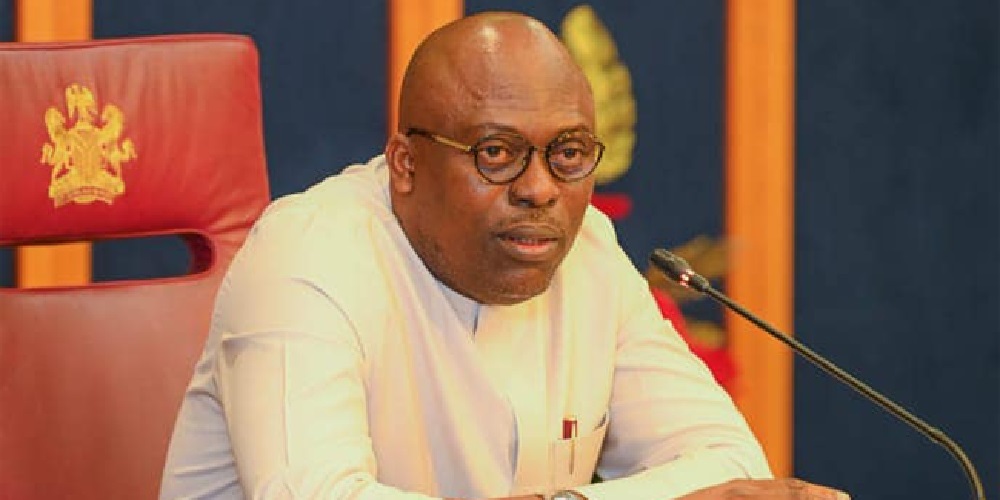
 News19 hours ago
News19 hours agoBREAKING! Fubara to honourably resign or face disgraceful impeachment process
-
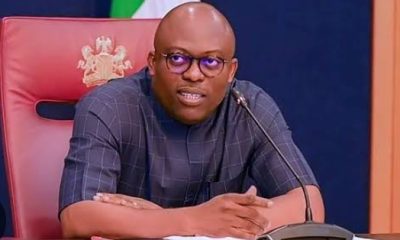
 News19 hours ago
News19 hours agoBREAKING: Resign Within 48 Hours Or Face Impeachment, Rivers APC Tells Fubara
-
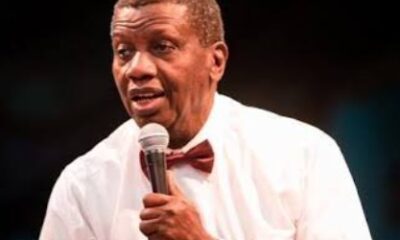
 News13 hours ago
News13 hours agoPastor Adeboye rejects living beyond a century
-
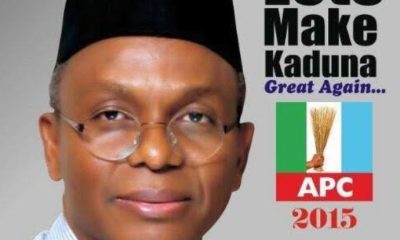
 News20 hours ago
News20 hours agoFinally , El-Rufai dumps APC, joins new political party
-
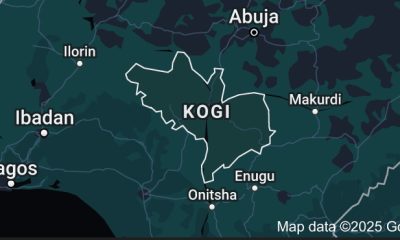
 News20 hours ago
News20 hours agoSAD: Ex-Deputy Gov of Kogi state is dead
-

 News18 hours ago
News18 hours agoBREAKING! Rivers Assembly issues warrant of arrest on RSIEC chairman
-
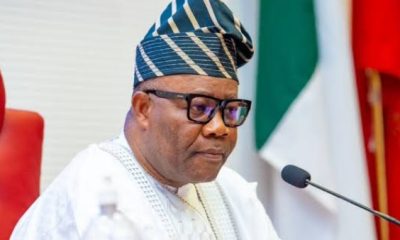
 News12 hours ago
News12 hours agoSuspension: Akpabio queries Court’s Jurisdiction To Hear Natasha’s Suit
-
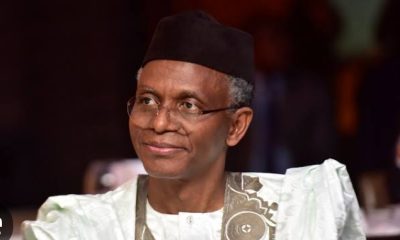
 News12 hours ago
News12 hours agoWhy I abandoned APC -El-Rufai






